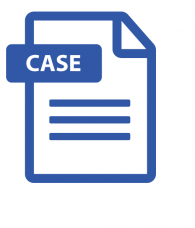We use cookies to make your experience better. To comply with the new e-Privacy directive, we need to ask for your consent to set the cookies. Learn more.
Hyper Island: A Creative Business School's Disruptive Maneuvers to Hold its Ground in the Education Landscape (A)
Set in two parts the case documents the manoeuvres of a creative digital business school, Hyper Island (HI). Part A is set in December 2019 and narrates the biased decisions HI to pursue a flawed business model. The case is discussed from the perspective of Melanie Cook, the Asia-Pacific Managing Director of HI in Singapore. Cook played a key role in HI's strategy team. In 2017, HI launched a consulting service to design and deliver bespoke learning journeys for its corporate clients to generate more revenue and create a unique competitive advantage. Since it overlooked the potential pitfalls due to prolonged sales cycles and resultant costs, HI landed in financial troubles. Cook and her team faced the dilemma of abandoning the consultancy business model and switching to a new business model that would shorten the sales cycle, slash costs, and bring in more revenue. Part B of the case documents how pivoting to a productized business model helped HI gain revenue growth and improve its bottom line. While the course correction saved HI from imminent financial failure, new challenges emerged. Cook had to find means of keeping the employees engaged and securing their buy-in to drive the productized business model.
Learning Objectives:
By reading and discussing the case, students will learn how to:
- avoid bias in decision-making
- pivot successfully for sustained growth
- productize services for profitability and competitive advantage
- remain customer oriented for successful productization
- secure organization buy-in and engage employees during pivoting
-
 General Management
Hyper Island: A Creative Business School's Disruptive Maneuvers to Hold its Ground in the Education Landscape (B)
General Management
Hyper Island: A Creative Business School's Disruptive Maneuvers to Hold its Ground in the Education Landscape (B)Set in two parts the case documents the manoeuvres of a creative digital business school, Hyper Island (HI). Part A is set in December 2019 and narrates the biased decisions HI to pursue a flawed business model. The case is discussed from the perspective of Melanie Cook, the Asia-Pacific Managing Director of HI in Singapore. Cook played a key role in HI's strategy team. In 2017, HI launched a consulting service to design and deliver bespoke learning journeys for its corporate clients to generate more revenue and create a unique competitive advantage. Since it overlooked the potential pitfalls due to prolonged sales cycles and resultant costs, HI landed in financial troubles. Cook and her team faced the dilemma of abandoning the consultancy business model and switching to a new business model that would shorten the sales cycle, slash costs, and bring in more revenue. Part B of the case documents how pivoting to a productized business model helped HI gain revenue growth and improve its bottom line. While the course correction saved HI from imminent financial failure, new challenges emerged. Cook had to find means of keeping the employees engaged and securing their buy-in to drive the productized business model.
Learning Objectives:
By reading and discussing the case, students will learn how to:
- avoid bias in decision-making
- pivot successfully for sustained growth
- productize services for profitability and competitive advantage
- remain customer oriented for successful productization
- secure organization buy-in and engage employees during pivoting
Saumya SindhwaniLakshmi AppasamyPublished: Aug 2, 2022

